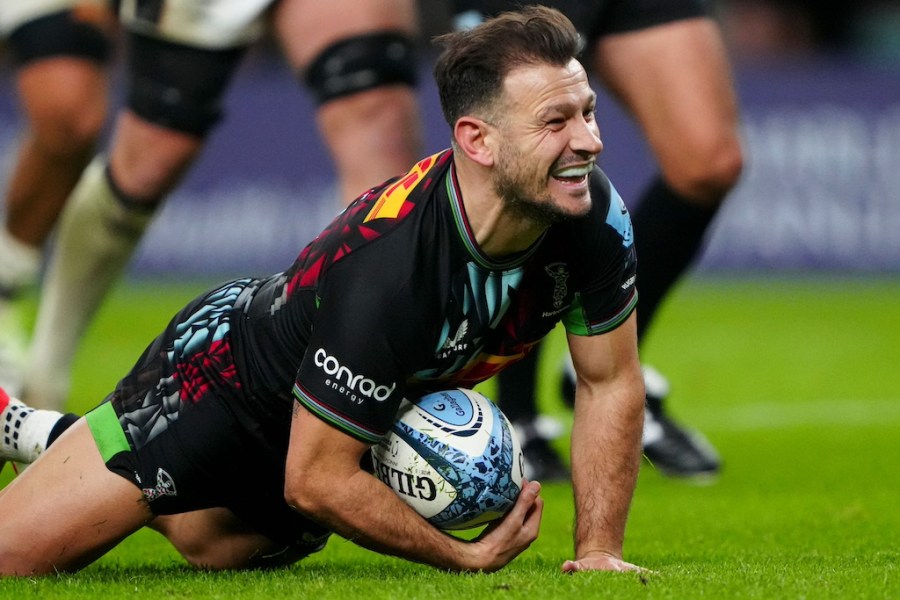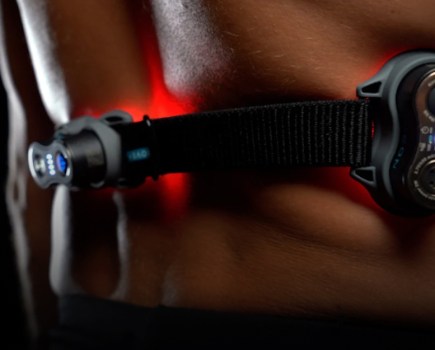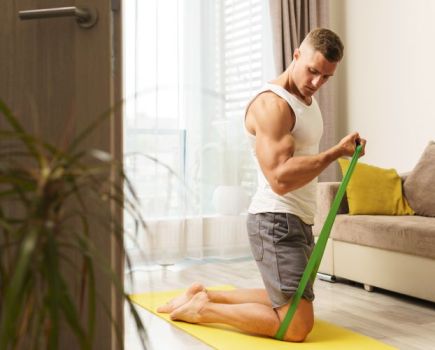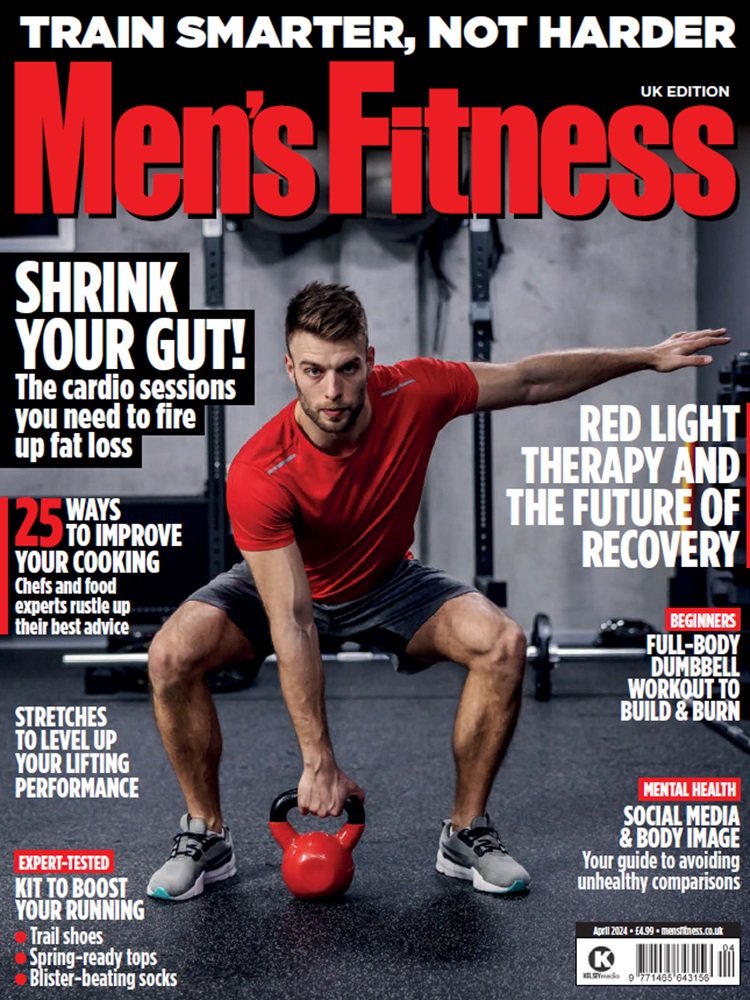Ahead of this year’s Big Summer Kick-Off, we spoke to England and Harlequins legend Danny Care about rugby fitness, the power of positivity, and the one workout he never wants to do again.
Renowned for his dynamic style of play, Harlequins stalwart Danny Care – who recently retired from England duty with 101 caps to his name – has established himself as a legend of the game through a career marked not just by world-class skill, but also resilience and adaptability.
Despite the acclaim, however, Care remains grounded. His lengthy career in the sport is rooted in a deep understanding of his body and a steadfast positive outlook. Rarely without a smile on his face, the 37-year-old continues to thrive in a sport often thought of as a young man’s game.
Ahead of Harlequins’ annual Big Summer Kick-Off, he talked us through the conditioning and mindset fundamentals that have ensured his longevity in such a bruising profession.
Men’s Fitness: Talk us through your weekly training routine
Danny Care: We won’t do any pure fitness work during the season. That stuff gets done in pre-season, so our fitness levels should be at required standard by playing every week. Obviously if you miss a week and you don’t play through injury, you might have a top-up cardio session or two.
We train Mondays, Tuesdays and Thursdays, with Wednesdays and Fridays off, and play Saturdays. On a Monday you’re running around 3k in training, so in and out of plays and conditioning games, that sort of thing.
Tuesdays are our tough days, which we call our ‘uncompromising days’. That’s a lot of physical work, so longer periods of ball in play that give the lungs a good hit, and some more contact work. I’d run around 5 or maybe 6k on a Tuesday, and we work up to 90% of maximum speed sprints during those sessions.
Thursday will be our fast day, so probably around 4k of running, but shorter periods of ball in play, higher intensities and longer recoveries.
MF: How has the strength and conditioning in rugby changed since you first started playing?
DC: It’s changed a lot, mainly as a result of the data that’s available now. When I started playing, you didn’t have a GPS or know how far you run, other than whether you looked shattered when you came off the pitch or not. In a way you could hide a bit, whereas now there are definitely no hiding places: you put your GPS vest and the coaches know how far you ran, how fast you ran, how quick you got off the ground. That’s also great, though, because you have lifetime data that you can improve upon each week. It gives training a purpose and can allow you to train smarter, not always just harder.
MF: Is rugby fitness mainly developed through game time?
DC: Yeah you can obviously sharpen yourself up with the odd session, but nothing prepares you better than game time and minutes. With rugby it’s such an all-encompassing sport – if I’ve been tackled, I need to get off the ground and sprint to the next ruck as quickly as possible – that it’s nearly impossible to replicate in the gym.
If ever we’re injured, we go through ‘return to play’ sessions, where we’re mimicking what we do in a match. For me that involves a lot of bending down as if I’m about to pass, covering back to make a tackle and sprinting to make a break. Very rarely would I do a whole workout just on a treadmill or a Wattbike, because that’s going to do very little to prepare me for a match.
It obviously varies a lot for each individual as well, because my training is going to look very different to that of a prop or a second-row. We kind of play completely different sports, so it would be stupid to train the same.
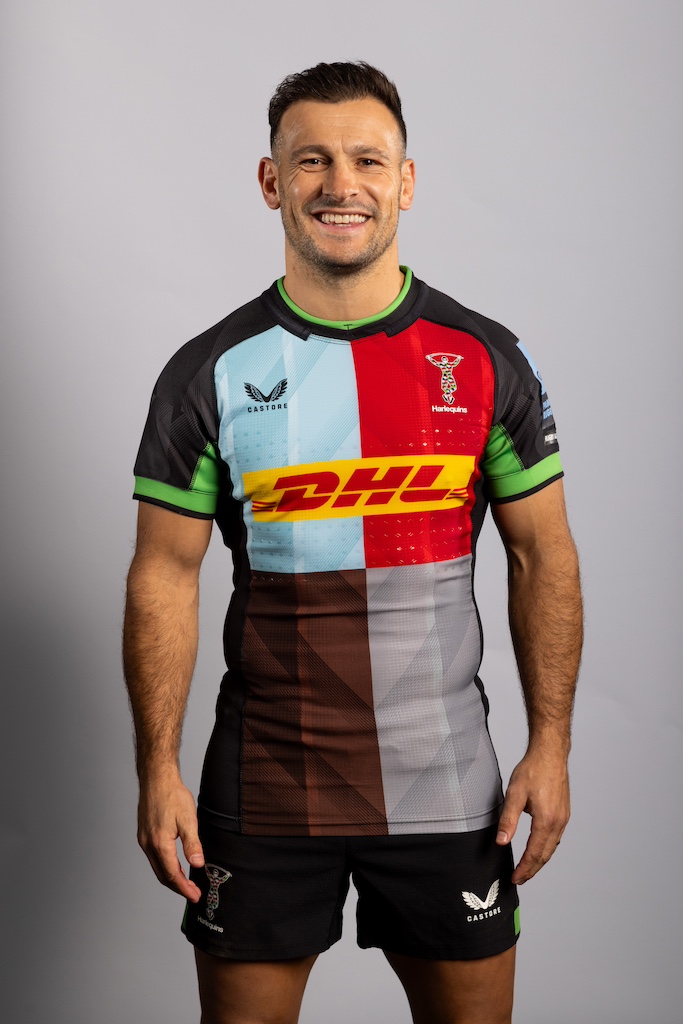
MF: As loyal Rugby Union Weekly listeners, you’ve mentioned the dreaded ‘Bronco’ fitness test a few times. Have you done one recently?
DC: No, and I set myself a little goal of never doing one of those ever again! Hopefully there’s an over-35 rule that means I don’t have to do it. Some of the kids these days can absolutely fly through it.
What is the Bronco fitness test?
The Bronco is a well-known rugby conditioning drill designed to assess and improve a player’s overall fitness, speed, agility, and endurance. The typical set-up involves four cones placed in a rectangle formation, with the sides measuring 20 meters each.
The aim is to complete the course as quickly as possible. This test is often done multiple times with short rest intervals to simulate the intense physical demands of a rugby match.
Start: The player begins at one corner of the rectangle.
First leg: The player sprints to the opposite corner (20 meters) and touches the line with one hand.
Change of direction: The player then sprints diagonally to the next corner, touching the line.
Second leg: The player sprints across the rectangle to the next corner, again touching the line.
Change of direction: The player sprints diagonally to the fourth corner and touches the line.
Third leg: The player sprints back to the starting corner, touching the line.
Finish: The player finishes by sprinting through the starting point, completing one full lap.
MF: Is gym work just a necessary part of the job, or do you enjoy lifting weights?
DC: It isn’t my dream day, to be honest. I’m not going to go in the gym and spend two or three hours in there, loving life. But what I have realised throughout my career is that I need it. Everyone is different; some lads love it and that’s what they use to clear their minds. But for me I just know the exercises I need to be doing to keep my body in the best shape possible.
I don’t go chasing PBs at my age – there’s no point. I just do what I need to do to keep my body ticking over, with a little bit of vanity work for the guns thrown in for good measure.
MF: Do you have a favourite exercise?
DC: For me, I stopped squatting for quite a few years because I had problems with my back – lower back especially. So we tried going away from squatting, but through a bit of trying and failing we’ve learned I actually need to squat to keep my back in a good spot. I don’t squat heavy now – the max I’ll go to is 130kg or 140kg – so we tend to take a bit of the weight off and get some good-quality reps in, with a focus on form and time under tension. That’s one of the exercises my body couldn’t probably live without and when I do hang up my boots I’ll continue to squat because I know it does good things for me.
MF: And any exercise you dread?
DC: If you see me on a rowing machine it’s not pretty. My body type doesn’t lend itself to rowing; the short limbs don’t work well. I’m not a massive fan of a Wattbike either – how that makes you feel in your throat and your lungs and your legs is just horrific!
MF: What are the secrets to your longevity in the sport?
DC: Definitely knowing my body, and you only do that through trial and error. I’ve managed to work out what I need. It’s also mindset: I’ve always been a glass-half-full, positive person, and I think that’s helped me along the way. It might sound a bit cheesy or easy to say, but I definitely think playing with a smile on my face and not worrying too much – especially towards the back end of my career – has helped in terms of longevity. Also being from up North… we’re tougher up there!
Danny Care spoke to Men’s Fitness ahead of Harlequins Rugby Club’s Big Summer Kick-Off on 27 April, with his team taking on Northampton Saints at Twickenham Stadium. For tickets, head on over to eticketing.co.uk/harlequins

